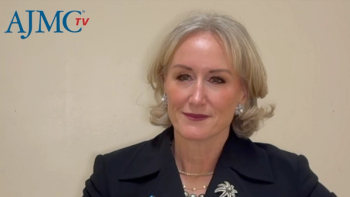
How Patient Advocates Can Help the Newly Diagnosed
Sonya Negley, IOM, CSMA, reviews how patient advocates can help patients newly diagnosed with metastatic breast cancer.
Episodes in this series

Sonya Negley, IOM, CSMA: I think the most important thing for patient advocates and patient advocacy organizations is to make sure that we have the correct, most recent data. The information about new treatment options coming to market can be overwhelming, and while it can be protracted, it also comes to market quickly. So, it’s important we as patient advocacy organizations have a good idea of what that means and what that means for the patients. The best thing individual patient advocates can do is get involved, and have a voice in what is going on with metastatic breast cancer.
For a lot of people who have cancer in general, most of their treatment options are pretty straightforward, and for the most part, their cancer can be contained or cured. But in metastatic breast cancer, that’s not where we are yet. We are at a point where there are a lot of discoveries happening, a lot of personalized medicine; however, it’s not a disease that is not terminal. It’s not chronic, it’s not curable. So, the best thing patient advocates can do is share their voice, share the importance of research. It is paramount that we fund research to make sure we can get to those good treatment options or treatment bridges, and hopefully soon, have a discovery that will render this disease survivable. Sharing stories of what they’ve gone through [is important]. Not necessarily saying to another patient that their journey equals the newly diagnosed journey, but rather, sharing their experiences so others can understand that you can have a good quality of life, and there are lessons [to be] learned from other patient advocates.
Transcript edited for clarity
Newsletter
Stay ahead of policy, cost, and value—subscribe to AJMC for expert insights at the intersection of clinical care and health economics.









